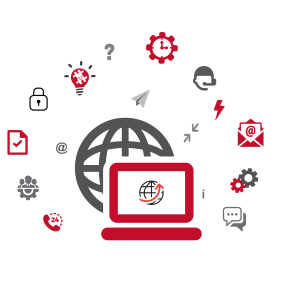Accurate and well-presented content will entice more customers, whereas poorly presented web pages with linguistic and factual errors will have the opposite effect.
The travel and hospitality sector is one of Greece's largest and most profitable industries. The online content of hotels and travel websites needs to be translated accurately but also creatively if it is to attract tourists into making a booking. However, localizing such content comes with its own unique challenges.
There are literally thousands of hotels in Greece that need their websites localized, usually into Greek, English, German and French, but also into other, less common languages. Having a hotel website that is localized well can be a make-or-break factor, as content that is accurate and well-presented will entice more customers. In contrast, poorly presented web pages with linguistic and factual errors will have the opposite effect.
Besides individual hotels, there are loads of online travel agencies (OTAs) with their own translation needs: Their content can range from user interface (UI) and marketing to legal (e.g., terms and conditions), etc., usually also taking into account SEO (search engine optimization) and SEM (search engine marketing) considerations. The localization of such content is fast-paced, as there are daily content updates, and many times there are extra challenges, such as character limitations and lack of context.
Another challenge is the localization of place names, points of interest (POIs), names of people, hotel names and addresses, etc. Especially in the case of large OTAs, we might be asked to localize place names and POIs from all over the world, such as China, Egypt, Latin America, etc.: How do you go about transcribing Egyptian place names into the target language alphabet when they have already been transcribed from the Arabic alphabet into the Latin alphabet?
And then, the travel sector has more creative content that needs to be translated. Destination descriptions are quite common, e.g., a description of Athens and its main monuments, as potential tourists want to have an idea of the place they are considering visiting. Hence, such descriptions must be enticing and colorful, as well as factually accurate. It is more transcreation than mere translation.
Hotel content (room names, amenities, rates, hotel and room descriptions, check-in instructions, etc.)
Destinations (marketing copies, points of interest, place names, etc.)
Legal (terms and conditions, etc.)
User interface
Marketing
Travel websites (on top of the content above: car rental information, flight information, tourist activities, cruises, etc.)
SEO/SEM content
Tourist brochures
With over 400 translators, editors & copywriters in our database, we will definitely find the right fit for your content
We cover more than 170 language combinations
Being a company based in Greece, one of the world’s leading tourist destinations, we are very familiar with travel and hospitality-related content
We have successfully carried out translation/localization projects for global online travel agencies, prestigious airlines, and various hotels, including creating destination marketing localized content for tourist boards and local organizations
We employ all current translation technologies to speed up production and ensure quality and consistency
With over 35 years of experience in the localization industry, we can create custom workflows tailored to your needs and expectations, whether this calls for highly specialized human translators and a multi-step process or the use of fine-tuned machine translation workflows
Our services are certified according to ISO 9001, 17100, and 27001 standards, which govern quality management and information security
Get a quote for your project, find out more about our services or learn about the Trados translation solutions.

If you are interested in joining our team, feel free to check out the available options under our dedicated Careers section.